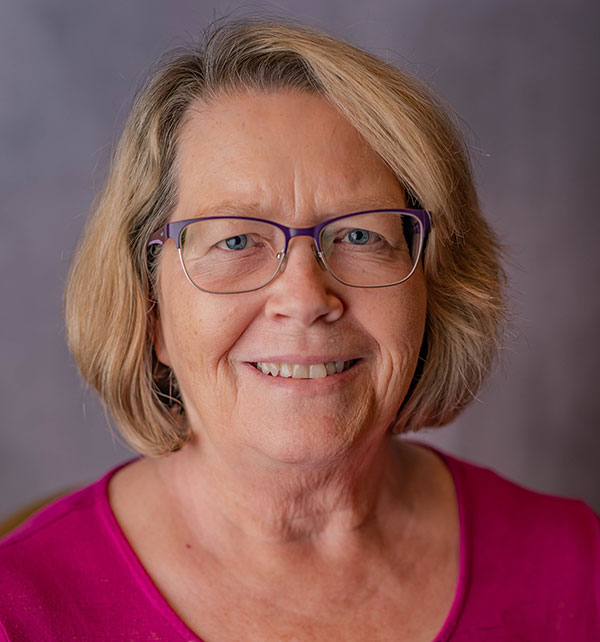What Will the Third Stage of Your Planning Career Look Like?

Every endeavor has a starting point. Looking back over my career, I am surprised by the twists in the path and turns of events. I could never have anticipated, as I started my first job in a small town police department as a records clerk, that I would go through so many changes to finally land a job that's both personally and professionally fulfilling as I enter my fourth decade of work. At the point where I am now, I have the luxury of looking back and the opportunity to look ahead to make the most of the mature stage of my career.
How many stages are in a career? Some say 3, 4, 5, or even 6. Many refer to the "third stage" of a career as lasting from the mid–40s to retirement. Your third stage can be the trickiest, as it is often a time of reflection and reinvention, both professionally and personally. Here are a few tips for that part of the journey, from someone who started over in their third stage.
Find Your Passion

Eunice Roxann Read
The current work environment is in a state of upheaval with the "Great Resignation," COVID-19 restrictions, and baby boomers retiring in droves. Your third stage has the potential to be full of opportunity, or dread. Perhaps you're reflecting on the legacy you want to leave, or you may be forced to reinvent yourself to continue in the workforce. You may question what successes you've had or wonder where you went wrong and why your career didn't end in a pinnacle position.
In any event, you can make the most of this third stage with some personal reflection and a fresh take on what motivates you. Take time to look inward, and reflect on your values and what gives you purpose. From there evaluate, assess, and plan on moving forward. Use your experience to help identify your goals for the future of your work life in these volatile times.
Pass on Your Skills and Knowledge
Younger planners may be looking to you as a role model of how someone successfully navigates a long career in the planning field. Take note of how you've stayed relevant and managed change with resilience, and what you learned the hard way.
Emerging planners may need a mentor to navigate a working world they're just starting. Being a mentor in the third stage can bring satisfying rewards, as you extend your influence beyond yourself, model leadership qualities, and teach others leadership skills, while also learning from your mentees. Encouraging future leaders is a succession planning strategy. Helping to identify and develop future leaders can be personally satisfying. Mentoring new planners helps to increase retention and development of knowledge, influencing planners and your planning community positively.
Work With Intention
Planning is my second, accidental career. While I haven't had a history of working solely in the planning profession, I was able to identify and build on the skills from my first career as a medical transcriptionist that allowed me to prosper in planning.
Each of us has our own measures of success; it could be the completion of a major multi-year planning project, making it through a rough day, or encouraging another person's professional development. It's not always a straight path. This is where intention meets resilience. Balancing the ability to stay focused on what you want and the resilience to adapt to change that you can't control is key here. A shift in the industry or changes in business models can throw you off course. It's a balancing act that requires self-forgiveness and a long view.
Think, too, about what's next. Some of us know we will have to work past the proverbial retirement age of 65 until we're 70 or even beyond. How are career stages measured then? What will success look like to you?
Appreciate Your Stage
I embarked on my current, second career in my 40s. After working as a freelance medical transcriptionist for 20 years, I realized that career would soon disappear. I went back to school and earned a master's degree in public administration, allowing me to work in the public sector for a variety of jurisdictions.
The journey has not been without challenges. I learned to put my mental health first and manage my stress well. That included a three-year hiatus from a particularly dysfunctional workplace. It was a discouraging time, to think that after years of professional work, I'd be starting over, but I got through it.
In my third stage, I'm very fortunate to be the co-chair of APA Florida's Equity, Diversity & Inclusion (EDI) Committee. Inclusion has been my mantra since 1991 when my youngest son was born with developmental delays and later diagnosed with autism. When APA Florida's EDI Committee was formed in 2019, I was on board but did not fully realize where it would take me or how it would affect me. Now as one of its leaders, my career has a new focus and definition of success. I realize that I have grown and changed along with the EDI committee team and other planners in our community.
I couldn't have dreamed that I would have the position I have now as assistant director in a city planning department. It only took me 40 years to get here, but each year has been worth it. I was determined to succeed when I started both careers; committed to overcoming challenges, learning, and growing through adversity, oppression, and suppression; resolved to move forward and not become stagnant. Appreciate your unique journey and the steps you have taken along the way, which add meaning and purpose to your planning career.
One final piece of advice for the third stage — enjoy. My plan when this stage is over and I'm retired: I'm going to Disney World!
Top Image: Denis Novikov/istock/gettyimagesplus.com


